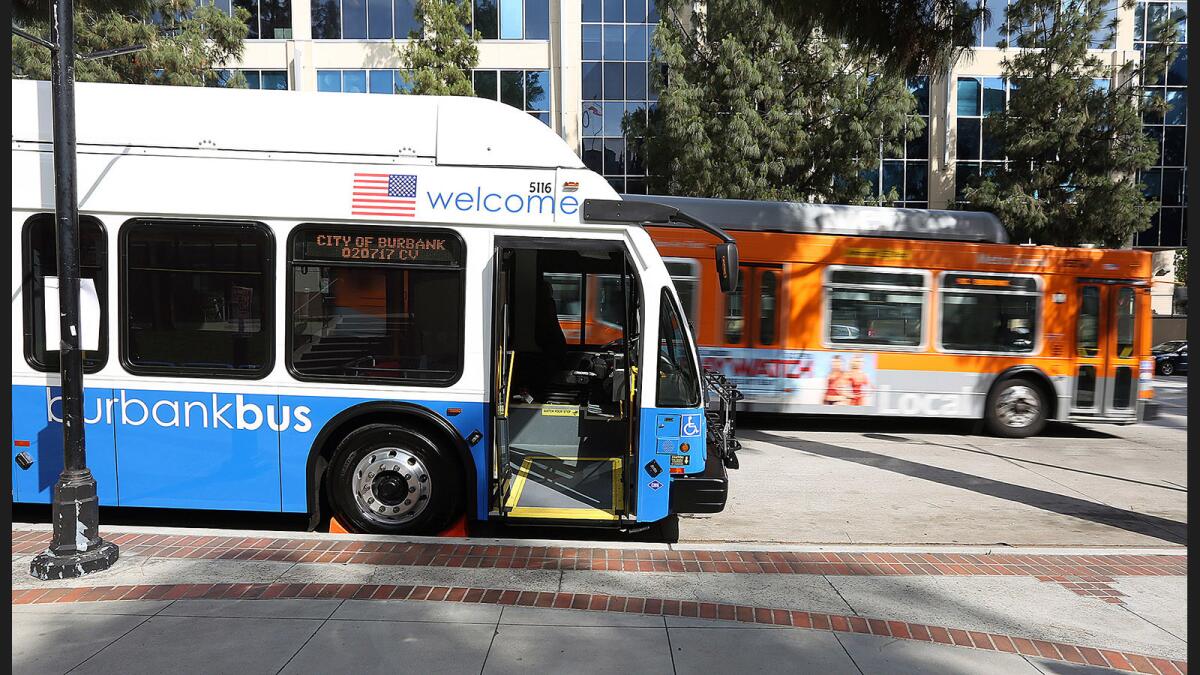Officials put brakes on BurbankBus Gold Route, steer toward other changes

- Share via
The BurbankBus system is about to undergo an overhaul, with at least one route dropped, in an effort to better serve the community.
The Burbank City Council unanimously voted on Tuesday to adopt a new policy aimed at guiding city officials when deciding on new bus routes for the local underutilized transit system.
Additionally, council members voted to eliminate the city’s Gold Route by Nov. 1 because of a lack of ridership, said David Kriske, the city’s assistant community development director of transportation.
Between July 2018 and April 2019, the Gold Route, which was created in May 2018 to provide a connection to the north Metrolink station near Hollywood Burbank Airport for those who live in that area, had 6,443 passengers.
The other three routes in the system had 200,821 passengers combined.
Kriske added that it cost the city about $29 per passenger to operate the Gold Route compared to $9 per passenger to run the other three routes.
While the cancellation of that line may be detrimental for some, Kriske said Metro currently has bus routes that serve the same areas.
Council members also approved extending the BurbankBus’ Pink Route all the way to the Universal City Metro Red Line station.
The Pink Route is the oldest and best-performing route in the system and provides a connection between the downtown Burbank Metrolink station and the Media District.
Kriske said the extension would continue to strengthen and increase ridership on the line by connecting Burbank to a Metro light-rail hub.
Another line that may be on the chopping block is the system’s Green Route, which Kriske said was the second-weakest performing route.
The line serves the Magnolia Park and Media District areas and provides a connection to the North Hollywood Metro Red Line station.
Ridership on the BurbankBus system has been on the decline since 2010 due to regionwide and local issues, Kriske said.
An improved economy, car ownership and not having stops in desired areas have contributed to the ridership drop.
He added that most riders in Burbank are not dependent on transit and that parking in the city is heavily subsidized and free to most people.
